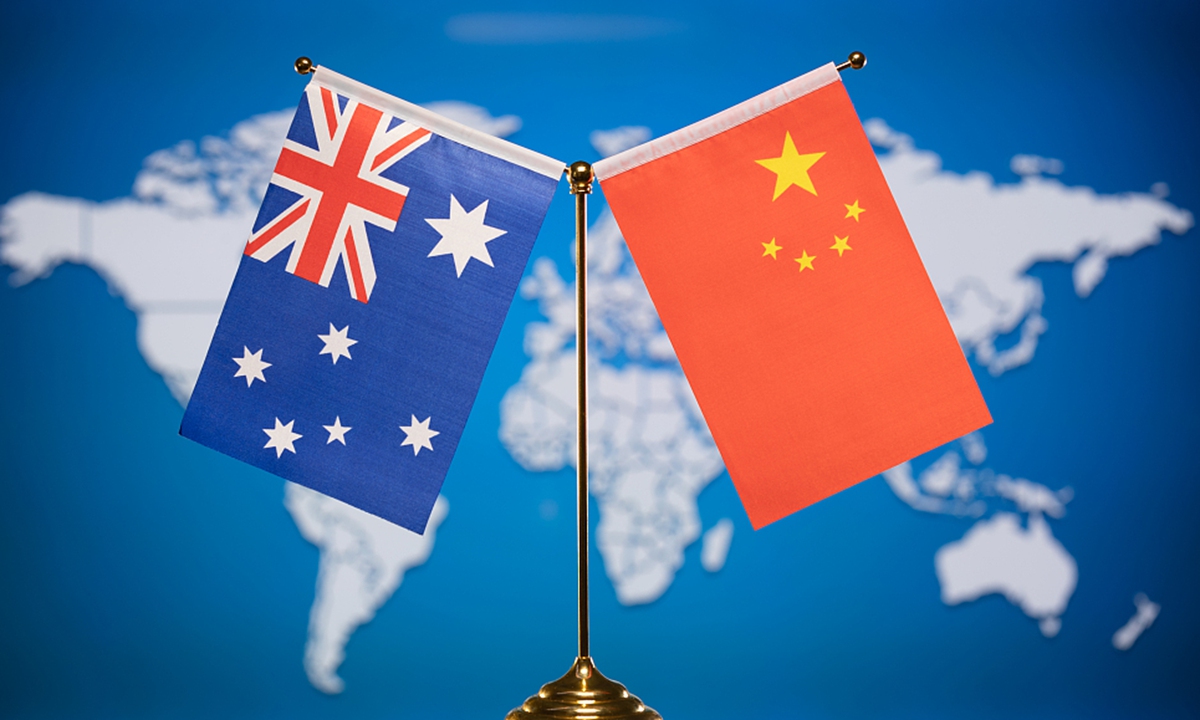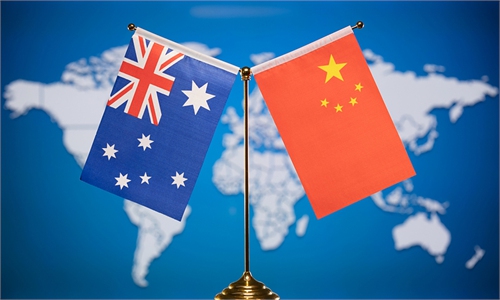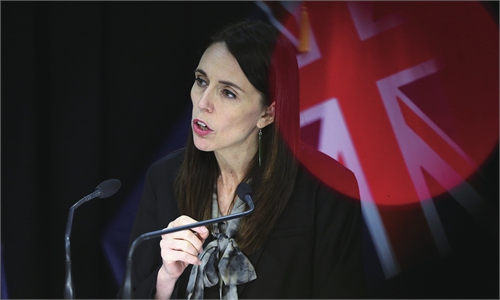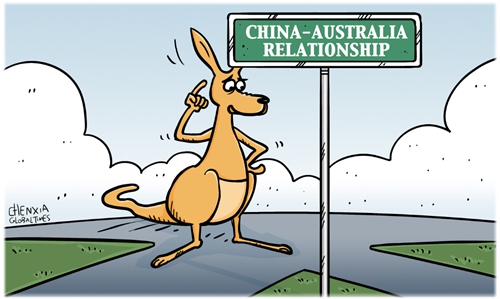Canberra called on to show rationality, political wisdom to reset China ties after FMs’ meeting

China-Australia Photo: VCG
Ahead of the Pacific Islands Forum (PIF) where Pacific leaders, pushed by Australia, are expected to discuss China's influence in the region, Chinese State Councilor and Foreign Minister Wang Yi pointed out the root cause for the deteriorating relationship between Beijing and Canberra and proposed a four-point suggestion to improve ties, as well as exchanged views on the affairs concerning Pacific region cooperation.
Over the past few years, the root cause of the difficulties in the China-Australia relationship lies in the insistence of the previous Australian government to take China as "opponent," or even a "threat," adopting a series of irresponsible words and deeds against China, Wang told Penny Wong, Australia's foreign affairs minister, on the sidelines of the G20 Foreign Ministers Meeting in Bali.
China urged Australia to take it as partner instead of opponent, to find common ground by dealing with divergences properly and not to target or be restrained by a third party and to build a positive and practical public opinion basis, according to a statement released by the Chinese Foreign Ministry on Saturday night.
This was the first meeting between the two countries' foreign ministers since 2019 and since the Albanese government was elected in May, the two countries have gradually reopened lines of high-level communication, according to media reports. Australian Defense Minister Richard Marles met China's Defense Minister Wei Fenghe in June on the sidelines of the Shangri-La Dialogue in Singapore in early June, unfreezing ministerial level contact between the two governments.
Wong described the meeting as an important first step to stabilize the relationship, but "it would take time for Beijing to remove trade blockages on Australia," Reuters reported. And Australia also expressed concern about China's growing presence in the Pacific region with Australian Prime Minister Anthony Albanese warning on Friday that Beijing "had become more aggressive," the media report said.
Some Chinese analysts see the first meeting between the Chinese and Australian foreign ministers as signaling some positive signs for an improvement in bilateral ties, however, the ball is in Canberra's court, which needs more rationality and political wisdom to not only help the bilateral relationship stabilize but also push it forward to yield positive results.
Urging Australia to take China as partner rather than an opponent is extremely important as it is an issue of misperception. The previous government considering China as an adversary led to quickly deteriorating ties given its warmongering rhetoric sometimes, Chen Hong, president of the Chinese Association of Australian Studies and director of the Australian Studies Center at East China Normal University, told the Global Times on Sunday.
"Also, urging it not to be restrained from a third party points to the essential problem, as Canberra has been blatantly following the US' strategic intention of containing China, and that has caused all the difficulties," Chen said, noting that all these four points of suggestions are practical on which the Australian government should take more concrete steps to make adjustment.
During the meeting of the two foreign ministers, Wang said that China attaches importance to the Australian government reiterating the insistence on the position of the comprehensive strategy partnership between the two countries, and praises the Australian government's adherence to the one-China principle. Following the UN Charter and the fundamental standards of the international relations is "our shared responsibilities," Wang said.
Compared to the Morrison government, the current Australian government has dialed down some anti-China rhetoric and reduced the frequency of making provocation against China, despite some politicians are repeating the old-fashion remarks in echoing the US-led West, Chen said.
Still, it's unlikely that the Australian government abandons its strategy of excluding China from the Pacific region at the upcoming PIF as it takes the region as "a forbidden zone" where only US-backed and Australian forces can exert their influence, reflecting an outdated colonial mentality, analysts said.
Australia and New Zealand's prime ministers agreed Friday that "the security implications of China's burgeoning influence" must be discussed at a meeting of western Pacific leaders from July 11 to 14 in the Fiji's capital Suva, the AP said.
"There's no doubt that security and security agreements will be a topic at the PIF. It's one of the reasons why I'm determined to attend," Albanese was quoted as saying in the media report. "It's in Australia's national interest for me to do so."
The Australian prime minister also said in May that the new Labor government "is redoubling efforts" to counter China's rising influence in the Pacific region while Wong visited Fiji following the signing of a security cooperation framework agreement between China the Solomon Islands.
The main purpose of the US-Australia joint pressure to exclude China from the meeting is to use the occasion to continue the pressure on the island countries in the absence of China, Yu Lei, chief research fellow at the research center for Pacific island countries at Liaocheng University in East China's Shandong Province, told the Global Times on Sunday.
"In terms of Australia-China relations, Australia only wants the Chinese market, not Chinese investment so it won't make any big change on issues such as the Huawei ban or the Belt and Road Initiative. To gain the Chinese market, the current government could dial down the anti-China rhetoric but it is unlikely to make any concrete changes," Yu said.





